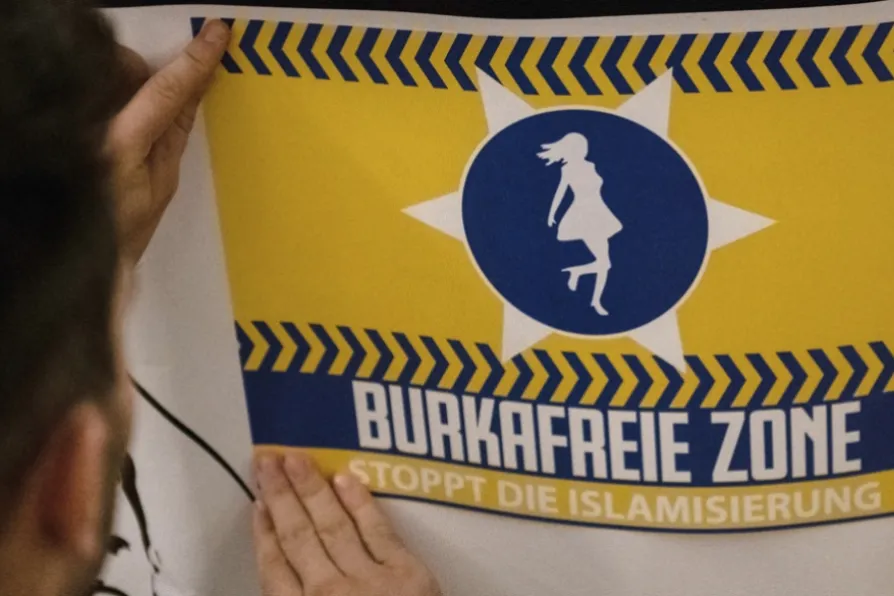CHRISTMAS 2025 is celebrated under the shadow of the hunger strikers imprisoned in British jails because of their solidarity with the Palestinian people.

 A man glues a poster reading "burka free zone — stop islamisation" at a meeting of the far right Alternative for Germany (AfD) party, in Neuenhagen near Berlin, earlier this month
A man glues a poster reading "burka free zone — stop islamisation" at a meeting of the far right Alternative for Germany (AfD) party, in Neuenhagen near Berlin, earlier this month
LINKS between Germany’s security services and the far right are nothing new, but the left across Europe should be watching the growing scandal over intelligence chief Hans-Georg Maassen’s seemingly cosy relationship with racists and xenophobes with care.
The far-right riot that exploded in the Saxon city of Chemnitz over the last weekend of August was not gone unchallenged. Giant counter-protests have been mobilised and Germany’s left and trade union movements are increasingly alert to the fascist threat.
Nor have German authorities done nothing. Chemnitz district court is fast-tracking criminal cases linked to the anti-immigrant unrest. One man was fined and given a suspended sentence today for making a nazi salute at the riot, with another case due to be heard tomorrow.

Decision allows Germany’s spooks to use informants and other tools to spy on the far-right party’s activities nationwide













